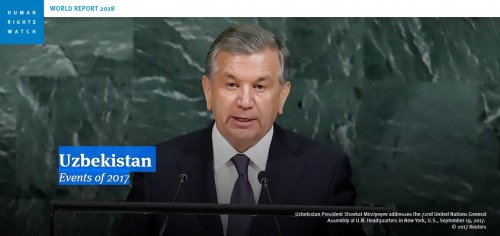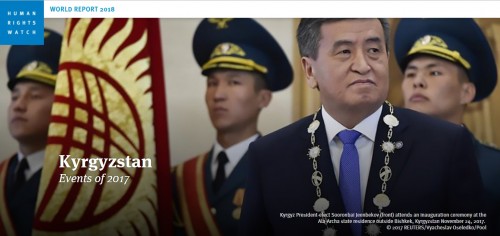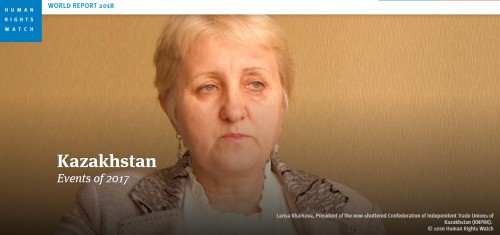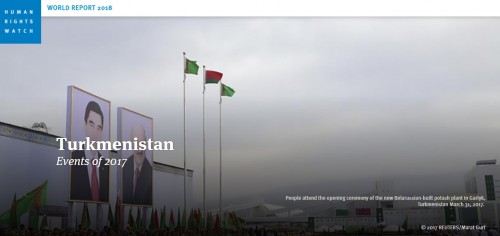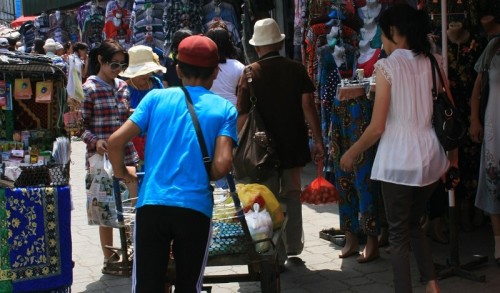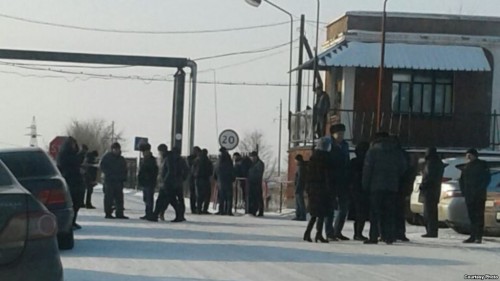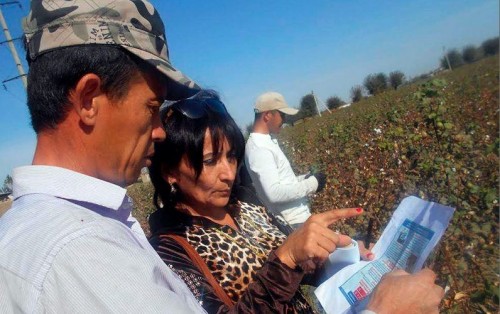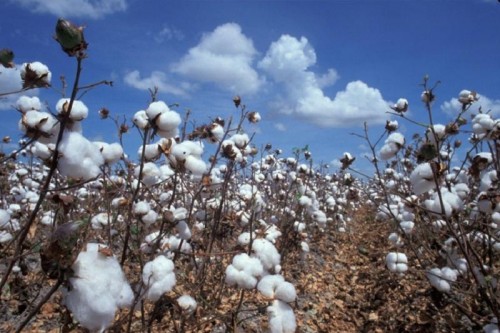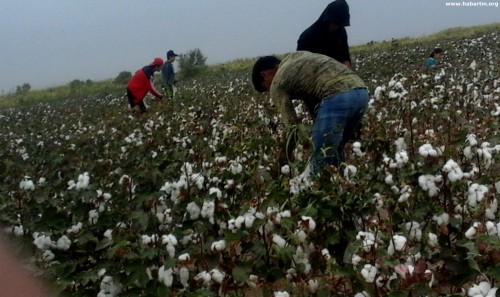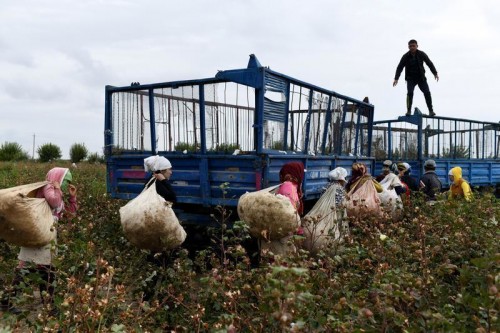Countries
Solidarity campaigns
13 August 2024
Georgia: Support striking workers at Evolution Gaming
5 June 2023
Georgia: Justice for Wolt couriers
10 May 2023
Belarus: Trade union activity is not extremism!
2 November 2019
Kazakhstan: Trade unionist Erlan Baltabay imprisoned - again!
19 November 2018
Kazakhstan: Stop repression and physical attacks on leaders of independent unions; hands off Larisa Kharkova, Erlan Baltabai and Dmitriy Senyavskiy
18 April 2018
MALOKHAT STILL NEEDS YOUR HELP
News
18 January, 2018 / uzbekistan
Uzbekistan Events of 2017
In the year-and-a-half since Uzbekistan’s President Shavkat Mirziyoyev assumed power following the death of his predecessor, Islam Karimov, he has taken some steps to improve the country’s abysmal human rights record, such as releasing some political prisoners, relaxing certain restrictions on free expression, removing citizens from the security services’ notorious “black list,” and increasing accountability of government institutions to the citizenry.
18 January, 2018 / kyrgyzstan
Kyrgyzstan. Events of 2017
The 2017 presidential election was won by Sooronbai Jeenbekov and marked the second time since independence in 1991 that Kyrgyzstan experienced a peaceful transfer of presidential power. International observers found the election to be competitive and orderly, but noted concerns about abuse of public resources, pressure on voters, and vote buying. Prior to the election, authorities banned public assemblies in central Bishkek and introduced restrictions on domestic election monitors, such as limiting the number of civil society observers per polling station to one.
18 January, 2018 / kazakhstan
Kazakhstan Events of 2017
As the Kazakh government hosted high-profile international events, including EXPO 2017, an annual international exhibition, and several rounds of Syria peace talks, its human rights record further deteriorated. Authorities suppressed independent trade union activity and continued to target government critics, including journalists, with politically motivated criminal charges and other harassment. Several activists and union leaders remain wrongfully imprisoned. The government is considering legislative amendments that appear to propose even further restrictions on freedom of religion. Impunity for torture and ill-treatment in detention persist.
18 January, 2018 / turkmenistan
Turkmenistan. Events of 2017
Turkmenistan remains one of the world’s most closed and oppressively governed countries. President Gurbanguly Berdymukhamedov and his associates control all aspects of public life. Elections extended Berdymukhamedov’s presidential term for another seven years.
18 December, 2017 / International
Migrant children need special protection
ADC “Memorial” welcomes the adoption of important UN documents on the rights of migrant children, which include two Joint General Comments of the Committee on the Rights of the Child (CRC) and the Committee on the Protection of the Rights of All Migrant Workers and Members of their Families (CMW) – “On the general principles regarding the human rights of children in the context of international migration” and “On State obligations regarding the human rights of children in the context of international migration in countries of origin, transit, destination and return”.
12 December, 2017 / kazakhstan
Coal Miners' Strike Spreads In Kazakhstan As Workers Stay Underground
SHAKHTINSK, Kazakhstan -- A strike by coal miners in north-central Kazakhstan has spread to more mines as hundreds of workers are refusing to return to the surface, demanding higher salaries and better benefits.
02 December, 2017 / uzbekistan
MALOKHAT URGENTLY NEEDS YOUR HELP
Malokhat is being targeted for her work monitoring forced and child labor in Uzbekistan’s government-run cotton harvest
22 November, 2017 / uzbekistan
Uzbek Official Unleashes Torrent of Abuse at Cotton Meeting
The head of the Parkent district administration of the Tashkent region, Nematulla Abdullaev, held a 45-minute meeting on November 1, 2017, during which he used abusive and insulting language to humiliate and intimidate the heads of organizations, enterprises, and community leaders for not sending enough people to pick cotton and meet quotas. An audiotape of this meeting was given to Radio Ozodlik (the Uzbek service of Radio Free Europe / Radio Liberty) by the head of an organization who took part in the meeting
16 November, 2017 / turkmenistan
Turkmenistan: Children Continue to Pick Cotton Despite Ban
In Turkmenistan, despite a ban on child labor, there are more children and teenagers in the cotton fields for this year’s cotton harvest campaign than in previous years. In addition, for the first time for many years the authorities in several regions of Turkmenistan have orchestrated the mass mobilization of children to pick cotton.
15 November, 2017 / uzbekistan

